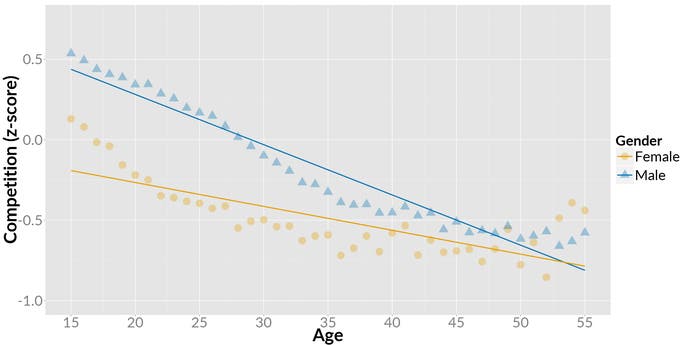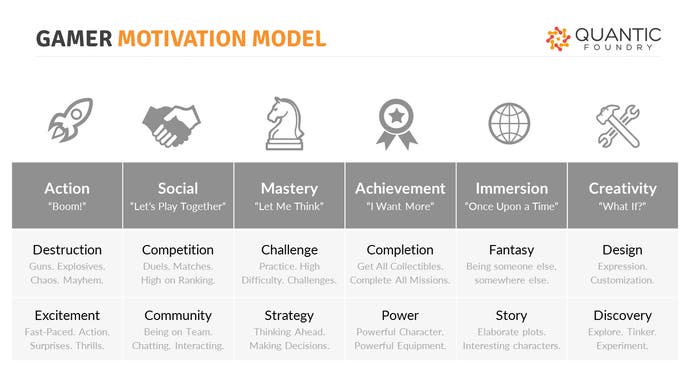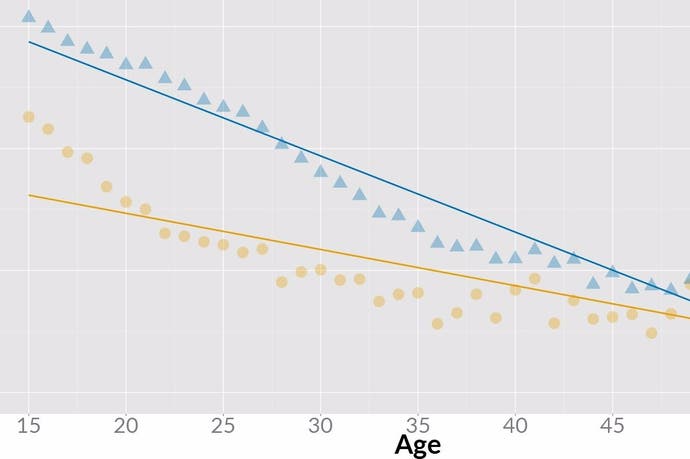How do our gaming habits change as we grow up?
According to one study, competitive gaming becomes less appealing.
As gamers age, competitive gaming becomes less appealing and genres such as strategy rise to the fore, according to a new study.
A survey over over 140,000 gamers by Quantic Foundry found the interest in competition changes the most with age, with competition defined as competing with other players in duels, matches or team versus team scenarios.
As gamers get older, the appeal of competition declines, the report's author, Nick Yee wrote in a blog post. This decline happens more rapidly for men than woman, but by the time we're past 45, the difference between men and women disappears.

Quantic Foundry's survey measured 12 motivations. Here's a handy image that explains the model used:

Strategy, it found, was the motivation that changed the least with age, with strategy defined as the enjoyment of gameplay that requires "careful decision-making and planning". Strategy as a motivation is most stable as gamers grow up, then. You're all playing XCOM 2, aren't you?
Overall, though, motivations decline with age, the study found. So what's going on here?
"First, as gamers get older and have a broader range of responsibilities and pursuits, they are less likely to rate any particular gaming activity as 'extremely important/enjoyable'", Yee suggests.
"Thus, their overall gaming profiles might appear deflated, but the relative order of their motivations would still be revealing.
"Second, lower scores on these motivations aren't necessarily 'less' of a motivation. For example, low Excitement implies a specific kind of gameplay, and calm/stress-free gameplay is no less valid than fast/stressful gameplay. The same is true for preference for solo play (as opposed to highly social play). The appeal of solo play isn't any 'less' of a gaming motivation than social play."
According to the Entertainment Software Association, the average age of a gamer is now 35 years old - an average that will no doubt continue to rise.
While Yee's study isn't definitive, what's clear is that gaming habits and preferences do change as people grow up - and in interesting ways.
For example, the data suggests competition is more of a youth motivation than it is a male motivation. The effect of age on competition is roughly double that of gender.
Yee also noticed a "predictable dosing" theme as he analysed the data. This is the idea that "time sink" games - or what we have traditionally thought of as "time sink" games, such as MMOs - now offer the ability to play in digestible chunks.
"We often think of MMOs as big time sinks," Yee said, "but it's absolutely true that many MMOs provide these bite-sized goals that are great for small chunks of downtime."
Have your gaming habits changed as you've grown up?

